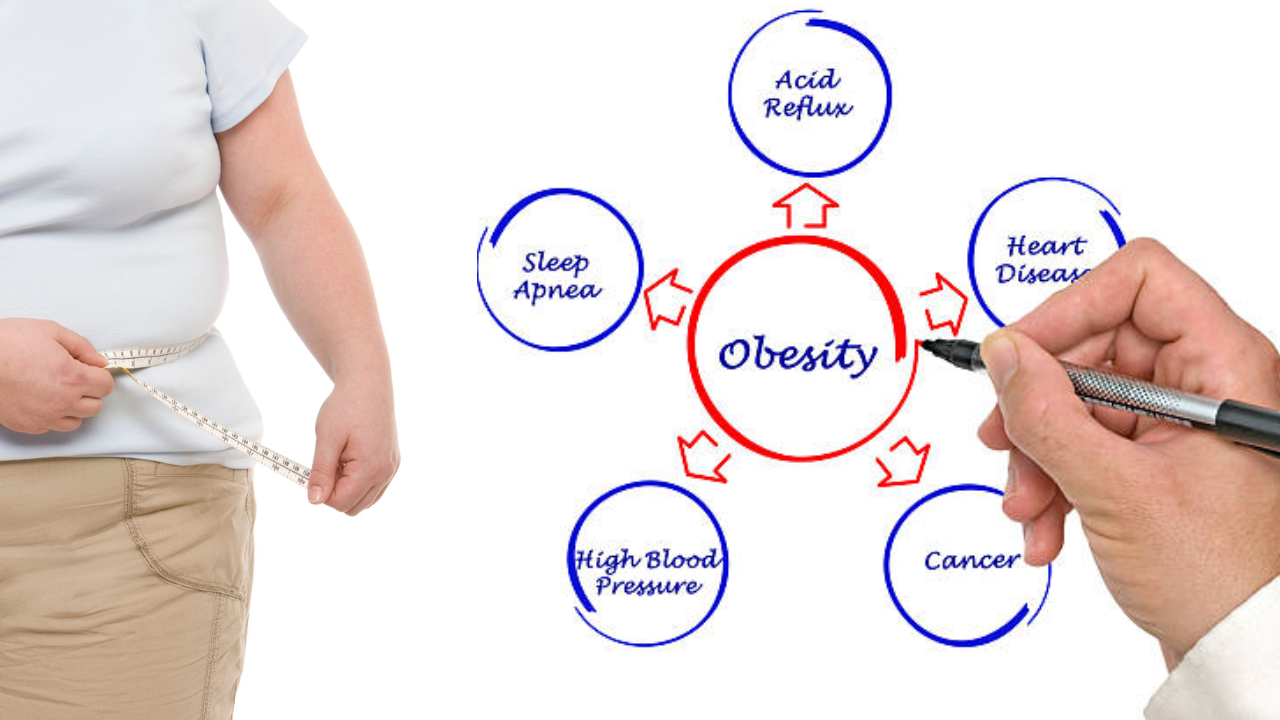Difference between Overweight and Obese
Do you know the difference between being overweight and Obesity? These are not the same, despite how frequently people use the names synonymously. It’s a good idea to dig more into these topics, whether you’re worried about obesity or just curious about what it takes to lose weight.
You may then contact a doctor if required and make the appropriate adjustments to your way of life.

What are obesity and overweight?
Obesity
For those unfamiliar, obesity is a metabolic disorder characterized by the abnormal and excessive buildup of fat throughout the body. Thus, an obese person suffers from a pathological condition that damages his health due to excessive fat buildup in his body. When a person’s Body Mass Index (BMI) is 30 or more, it is considered a pathology.
This is not only an aesthetic issue; it poses real risks to people’s bodily and mental health and must be addressed immediately. And it says that obesity is a condition that raises numerous health conditions. It affects around 650 million people worldwide.
Overweight
Having a BMI that is more than the ideal range for one’s height is considered to be overweight. To be overweight is different from being obese. Furthermore, this greater than ideal weight may also be caused by an accumulation of fluids, by a weight that is greater than the usual of the bones, or by the presence of increased muscle mass, in addition to the fact that the buildup of fatty tissue is not harmful in and of itself.
When a person has a BMI between 25 and 29, you call that individual overweight. It is the first step toward obesity, but you cannot refer to it as obesity since you are not dealing with the disease.
Have queries or concern ?
What is considered obese and overweight?
The BMI is a helpful indicator for determining your status in these groups. It measures how much extra fat you carry relative to your height and gives you weight in kg/m2.
To determine your body mass index, you will need the following information:
- Weight: The number that appears when you step on the bathroom scale; for BMI purposes, it is more beneficial if expressed in kilograms. If your bathroom scale only displays your weight in pounds, you’ll need to do some simple calculations to convert it to kilograms.
- Height: You should also know how tall you are. To get your body mass index, you’ll need to know your height in meters. If your measuring tape only gives you results in inches, you’ll need to do some math to figure out how tall you are in meters.
Comparison chart for both children & Adult
The following table summarises the difference between inguinal and femoral hernia:
| Obesity/ Overweight | Adults | Children under 5 years of age | Children aged between 5–19 years |
| Obesity | A BMI of 30 or above indicates obesity. | Obesity is a weight-to-height ratio over three standard deviations over the WHO Child Growth Standards median. | More than two standard deviations over the World Health Organization Growth Reference median indicate obesity. |
| Overweight | A BMI of 25 or above indicates being overweight. | Overweight is a weight-to-height ratio of more than two standard deviations over the WHO Child Growth Standards median. | BMI-for-age above one standard deviation over the WHO Growth Reference median indicates overweight. |
Conclusion
The terms “overweight” and “obese” are often used interchangeably. While there is some overlap between being overweight and obese, the degree to which extra fat has been accumulated in the body is the defining characteristic of each.
Obesity is a disease because it causes many problems over time, and being overweight is a risk factor for many problems.
Patient Feedback
Great doctors, Good facilities, caring and helping staff. I recommend this hospital for day care services.
![]()
![]()
Sangram Shinde
All doctors r very good. There treatments is best. Other staff also good. The service of nurses is great...Hospital is always clean.
![]()
![]()
Vaishali Aitawade
All services provide by hospital are nice and on time. Doctors are polite and co-operative with patient.
![]()
![]()
Ankita Jagtap
All services provided by hospital is good. Hygiene maintained well.Even at night good care provided.
![]()
![]()


